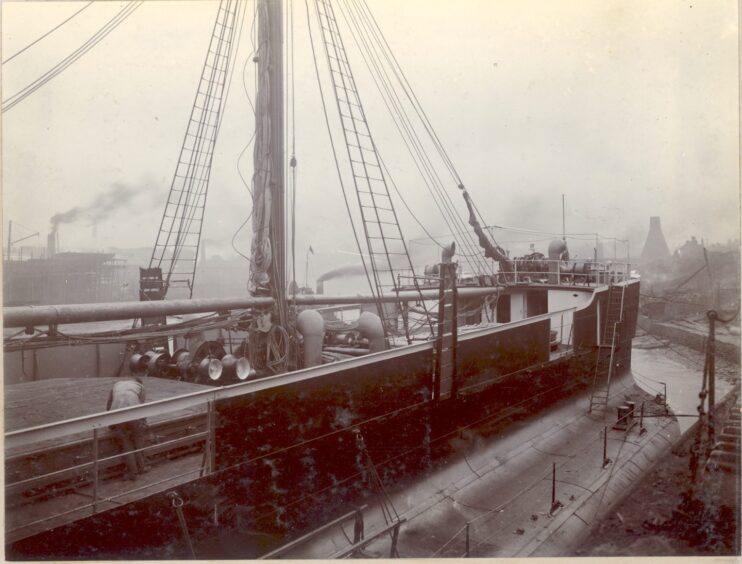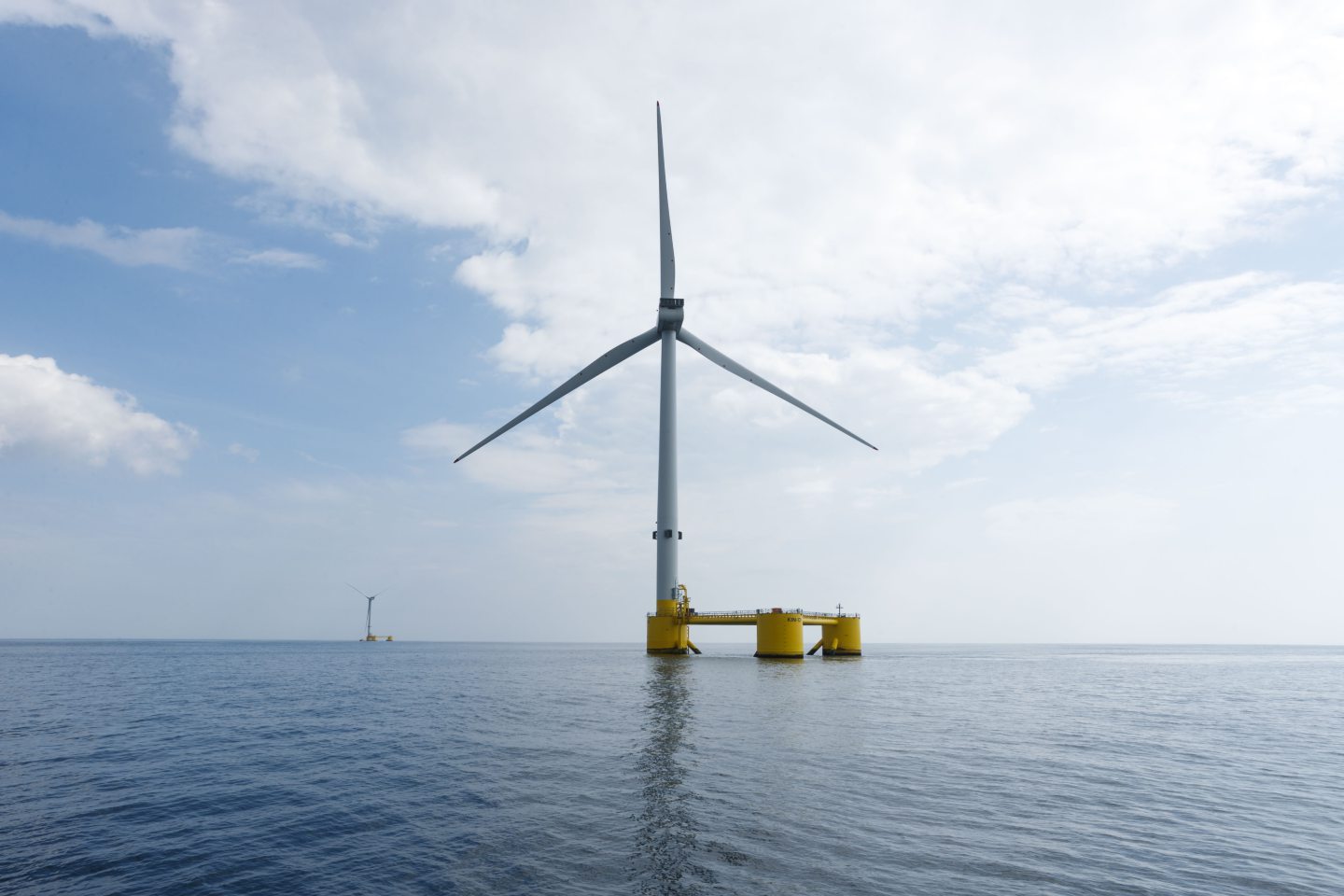
Marine surveys for a ScotWind floating offshore wind project may have helped solve a 107-year-old maritime mystery following the discovery of a WWI shipwreck.
Data gathered via sonar scans by the Fugro Galaxy during surveys for the MarramWind project has identified the likely resting place of the SS Tobol.
ScottishPower Renewables and Shell are developing the 3 GW MarramWind project nearly 47 miles off the coast of Fraserburgh.
Built in Sunderland at the turn of the 20th century, the Tobol was torpedoed by a German U-boat in 1917.
The Tobol was operated as the SS Cheltenham by a steamer company until it was captured by Russian warships in 1904.
A year later, it was transferred to the Russian Imperial Navy and renamed after the Tobol river in Russia.
It was later sunk by the German U-boat U-52 on 11 September 1917 while sailing from Blyth to Arkhangelsk.
SS Tobol discovery
ScottishPower said after the discovery of the SS Tobol, the company established an exclusion zone of 250 metres to protect the wreck during survey works.
MarramWind development manager Colin Anderson said the archaeological discovery is an “added bonus” to the benefits the windfarm itself will bring.
“This really is an extraordinary find, given that our seabed surveys – which give us vital information about seabed conditions and what that means for the development of MarramWind – covered a distance of around 6,000 miles,” Anderson said.
“We always expect to come across wrecks when carrying out works like this, but these tend to be smaller vessels and known to the authorities.
“While the Tobol was known to have been torpedoed in the war, its location was unclear, so to discover it after more than a century and uncover its history is something special.”
Anderson said the Tobol had a “fascinating story” and said the find could help researchers to learn what happened to the people on board.
“However, we also need to be mindful that the wreck could be the final resting place for crew members, so hopefully our find will provide closure and comfort for their families and descendants,” he said.
Important marine heritage
WSP marine and coastal heritage and archaeology lead Toby Gane said: “‘This discovery of a small – but important – piece of a collective national jigsaw puzzle of marine heritage speaks not only to the global nature of international commerce and alliances in the early 20th century, but also to the interconnectedness and competitiveness of national interests at the time, something still relevant today.
“It’s incredible that – more than a century on – we finally have a sense of where the SS Tobol likely went down thanks to MarramWind.”
ScottishPower said it has notified the UK Hydrographic Office and Historic Environment Scotland of the wreck find.
The company said discussions are ongoing to establish a long term archaeological exclusion zone to ensure the SS Tobol wreck is protected and preserved.

 © Supplied by Flotation Energy
© Supplied by Flotation Energy